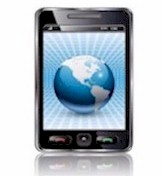|
|
DSC Tech Library
Computer Telephony Integration
 This section of our technical library presents information and documentation relating to CTI Computer Telephony Integration software and products.
Computer Telephony Integration CTI software is a rich set of phone software library routines that enable application programs to control your phone system.
This comprehensive CTI software lets you increase employee productivity, enhance customer service and reduce costs by combining the capabilities of our PACER phone system with the custom functionality of your Windows, Unix or Web applications.
Data collected by your phone ACD (Automatic Call Distribution) or IVR (Interactive Voice Response) systems can be passed to your existing PC, Unix or Web applications through our phone software.
The PACER predictive dialer can automatically call your customers and pass only connected calls to your agents. With our computer telephony software, your telephone and computer work together to provide cost-saving benefits.
This section of our technical library presents information and documentation relating to CTI Computer Telephony Integration software and products.
Computer Telephony Integration CTI software is a rich set of phone software library routines that enable application programs to control your phone system.
This comprehensive CTI software lets you increase employee productivity, enhance customer service and reduce costs by combining the capabilities of our PACER phone system with the custom functionality of your Windows, Unix or Web applications.
Data collected by your phone ACD (Automatic Call Distribution) or IVR (Interactive Voice Response) systems can be passed to your existing PC, Unix or Web applications through our phone software.
The PACER predictive dialer can automatically call your customers and pass only connected calls to your agents. With our computer telephony software, your telephone and computer work together to provide cost-saving benefits.
Unwiring broadband
by Kevin Fitchard
TelephonyOnline.com, Aug 31 2004
The RBOCs are beginning to sound more like wireless providers every day now. Verizon Communications just announced its first broadband wireless trial, using pre-WiMAX technology developed by Alvarion (see story in Top News), and a few weeks ago SBC Communications committed itself to developing a territory-wide network of Wi-Fi hot spots by the end of the year.
These announcements wouldn't be so odd if they came from the carriers' affiliated wireless units (Verizon Wireless and Cingular Wireless, respectively), but both Verizon and SBC are tinkering with wireless broadband access under the banner of their wireline businesses. And in some cases, these technologies might compete directly with the assets of their wireless affiliates--for instance, if Verizon does pursue WiMAX, it might find itself in direct competition with Verizon Wireless' new CDMA 1x EV-DO network.
But those are issues for future business models to work out. Right now, it's enough that the RBOCs are starting to give these new technologies a whirl. Verizon already shocked a lot of people in the industry when it launched free Wi-Fi for DSL customers in New York City, and while that experiment may not have expanded beyond Gotham, the carrier deserves credit for attempting to put a new twist on broadband and Wi-Fi both. I wouldn't be surprised if it tries something just as interesting with broadband wireless.
SBC's wireless efforts should be watched closely, too. The company has already said that it plans to merge Cingular's GPRS and future 3G capabilities with Wi-Fi, creating a broadband wireless network that flows seamlessly between local area Wi-Fi networks and its wide-area GSM-based network. Expect that the carrier takes the plan one further and starts integrating that merged wireless access service with its DSL service.
It might seem like a stretch, but as home wireless networking grows, DSL customers will start wondering why, if they can take their broadband-connected laptops to the den or the kitchen, they can't take them to the coffee shop or airport. SBC or another carrier might just have an answer.
Contact me at kfitchard@primediabusiness.com.
|


 This section of our technical library presents information and documentation relating to CTI Computer Telephony Integration software and products.
Computer Telephony Integration CTI software is a rich set of phone software library routines that enable application programs to control your phone system.
This comprehensive CTI software lets you increase employee productivity, enhance customer service and reduce costs by combining the capabilities of our PACER phone system with the custom functionality of your Windows, Unix or Web applications.
Data collected by your phone ACD (Automatic Call Distribution) or IVR (Interactive Voice Response) systems can be passed to your existing PC, Unix or Web applications through our phone software.
The PACER predictive dialer can automatically call your customers and pass only connected calls to your agents. With our computer telephony software, your telephone and computer work together to provide cost-saving benefits.
This section of our technical library presents information and documentation relating to CTI Computer Telephony Integration software and products.
Computer Telephony Integration CTI software is a rich set of phone software library routines that enable application programs to control your phone system.
This comprehensive CTI software lets you increase employee productivity, enhance customer service and reduce costs by combining the capabilities of our PACER phone system with the custom functionality of your Windows, Unix or Web applications.
Data collected by your phone ACD (Automatic Call Distribution) or IVR (Interactive Voice Response) systems can be passed to your existing PC, Unix or Web applications through our phone software.
The PACER predictive dialer can automatically call your customers and pass only connected calls to your agents. With our computer telephony software, your telephone and computer work together to provide cost-saving benefits.